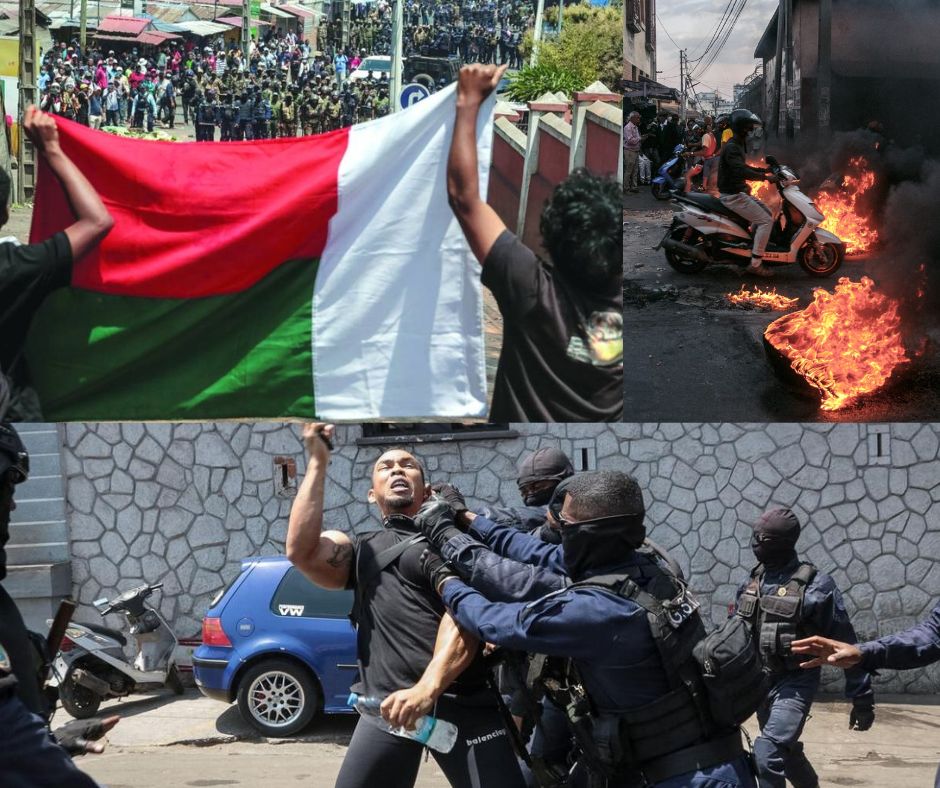Protests are intensifying in Madagascar despite President Andry Rajoelina’s decision to dissolve his government. In a televised address, the president admitted to administrative failings and offered condolences to the families of those killed in the unrest.
He apologised to citizens, saying their demands had been heard, but his move fell short of calming the streets. Demonstrators, led largely by Gen Z, insist they want Rajoelina himself to step down, not just his ministers.
The wave of demonstrations, which began last Thursday, was triggered by chronic water and electricity shortages. What started as frustration over basic services has now evolved into one of the most serious challenges to Rajoelina’s leadership since his re-election in 2023. Protesters say they are determined to continue until meaningful change is achieved, even in the face of arrests and threats. Former Fisheries Minister Paubert Mahatante was the only dismissed cabinet member to react publicly, vowing on social media that he remains committed to serving the Malagasy people.
Authorities have responded with force, imposing a night-time curfew in the capital Antananarivo and other major cities, while security forces use tear gas and rubber bullets to disperse crowds. The United Nations reports that at least 22 people have died and more than 100 others have been injured since the protests began — figures the government disputes. With tensions running high and little sign of compromise, Madagascar faces mounting political instability and deepening public anger.
